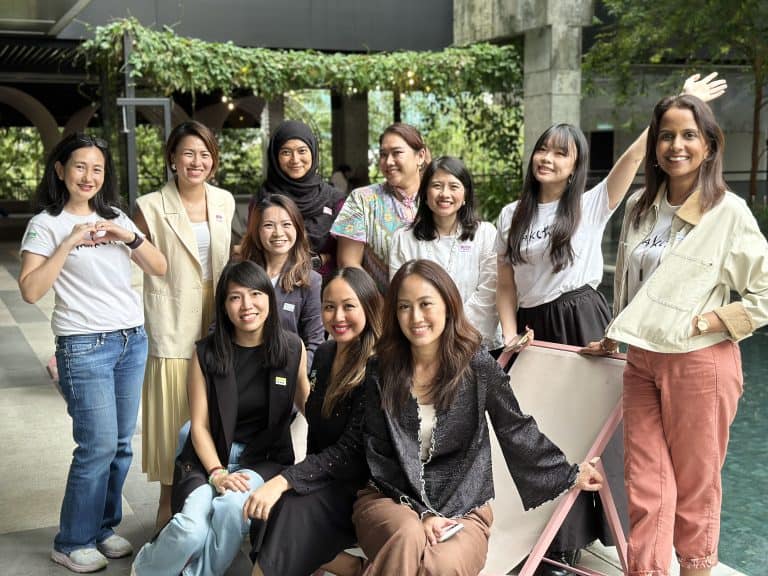My 15-month-old son is running down the aisles at Harvey Norman at the Ikano Power Centre mall, arms flailing, shrieking in delight, as if he’s in Disneyland. Earlier, his father and I had been looking for a children’s play area at the mall.
“No need,” I say. This is it. The carpeted aisles at Harvey Norman, where our son is running past fridges, peering into front load washing machines, trying to attack table fans and dismantle air conditioners. This is what makes him happy.
If you have ever seen a toddler happy, you’ll want to recreate that feeling. Unbridled, uninhibited happiness that looks drug-fuelled but isn’t. It sure sounds corny, but they’re high on life. There’s so much they haven’t seen so they want to see, feel and explore it all because everything is so new and wonderful.
I don’t know about other families, but when I was growing up, happiness didn’t seem to be a priority in raising a child. This isn’t meant to judge how my parents chose to raise their children, only that priorities were different in their time. Back then, it wasn’t what made a child happy that was important. It was what was good for the child. Perhaps that still rings true today. But I remember too many instances of what I “should” do and what I “must” do instead of what I really wanted.
My parents didn’t grow up with luxuries that we had. My grandparents were poor and uneducated and all they could think of was to make sure that their kids, my parents, weren’t as poor as they were. And when it came to my parents’ turn, their goal was to ensure that we would obtain the best education possible and from thereon, the highest paying job available. My parents didn’t really have the luxury of being able to think about happiness. Their parents lived during the war and thought only of survival. My parents were post-war babies who were taught that life was hard and money was important.
I suppose there are many of my peers who place a similar importance on money and material comforts. But I have come to realise that there is one thing I want my son to remember that he has learnt from me – the importance of happiness. None of those things – money, success, fame – will mean anything to him if he isn’t happy. If I raise my child to be a happy adult, no matter what he ends up doing in life, I will feel as if I have somewhat managed not to completely mess up this parenting thing. And happiness, to me, means my son becoming who he wants to be, not based on my expectations or anyone else’s. I want him to pursue what he does best and maximise his full potential, all without harming other people or himself, of course.
At this age, however, I don’t think toddlers have a proper measure of happiness. To them, eating dirt at the park might make them as happy as playing with Lego. As unbridled as their happiness, their unhappiness is clearly expressed – not being able to throw their teddy bear into the toilet bowl can feel like the end of the world. “The injustice of it all! I just to watch Teddy swim in there! Why is my mother preventing me from experiencing life?” they must be protesting through their angry babbling.
Toys alone don’t make toddlers happy. It occupies their time but genuine happiness is found when you play with them. Your love and attention is what gives them real happiness. Your inconvenience and fatigue in chasing after them when they decide to run laps around a pet shop is what gives them the joy of being able to do as they please within the boundaries of safety. They trust you to keep them from harm, not to stop them from new experiences but to be there to ensure that they are safe while doing so.
It’s a tricky balance trying to keep your toddler happy. The balance between disallowing him to do something that’s dangerous for him and being permissive enough so that he will grow up with confidence instead of fear. The literature I’d read about raising toddlers left me thinking that I should try to avoid saying “no” to my toddler too much. But I still end up doing it for when I want him to stop biting electrical cables, sticking his drool-covered fingers into electrical outlets, throwing things into the toilet bowl and the list goes on.
The Harvey Norman salesman who has been watching me pull my son away from a table fan offers to switch it on for me.
“But we’re not buying this,” I tell him.
“It’s okay, babies love the breeze,” he says and turns the fan on. As I hold my son at a safe distance from the fan and watch him clap his hands, laughing gleefully while the wind messes up his wavy black hair, I wonder if it isn’t he who knows a thing or two more than me about true, simple happiness.
–
Janet Tay was a freelance writer and editor before becoming a stay-at-home mum. She has published short stories, book reviews and articles on books and the literary world in MPH Quill and The Star. She current juggles her time between writing and running after her toddler around the house.
Image Credit: Dreamstime











